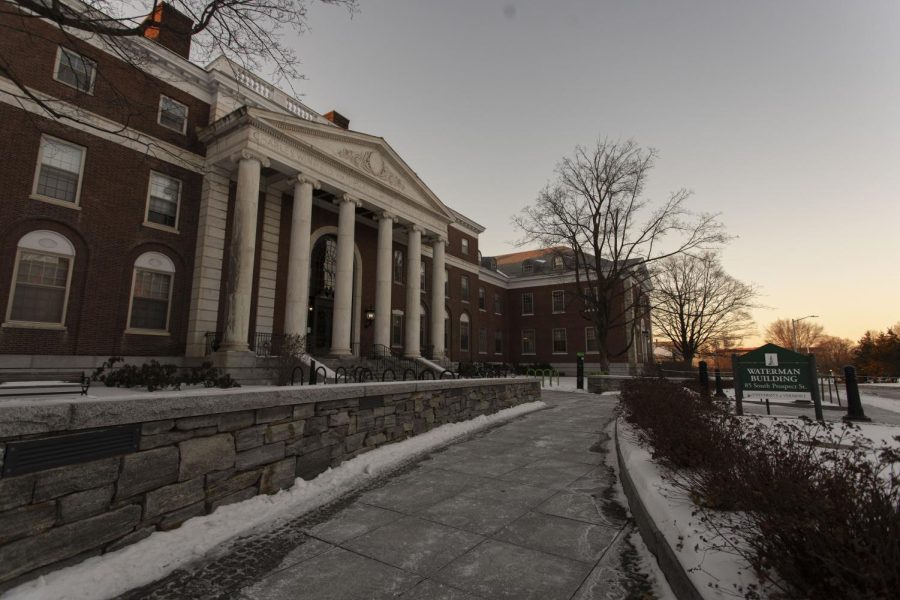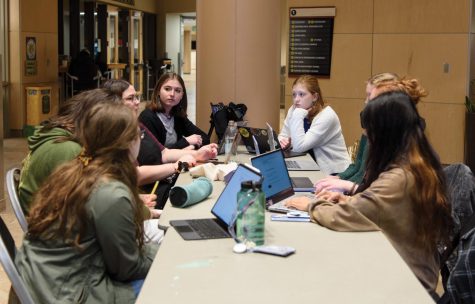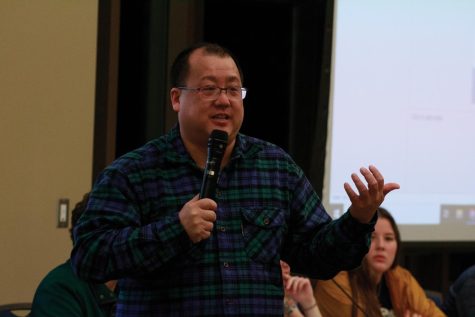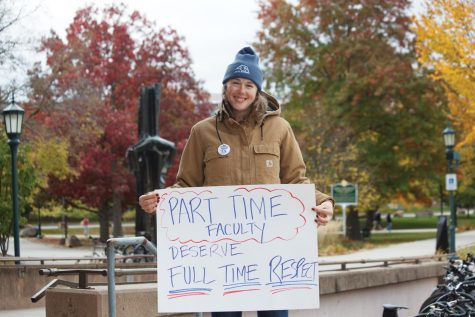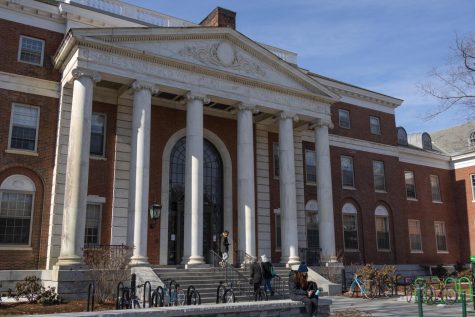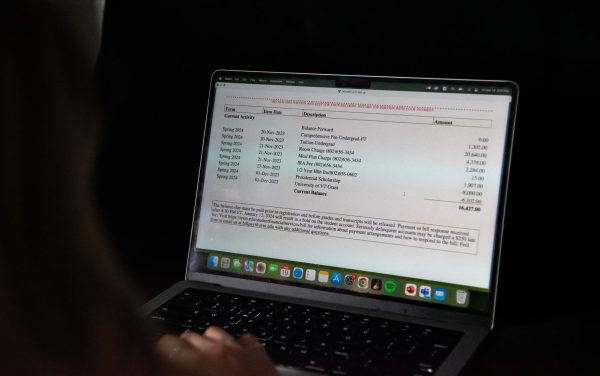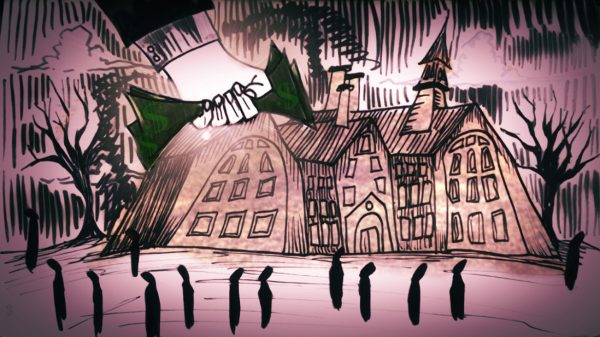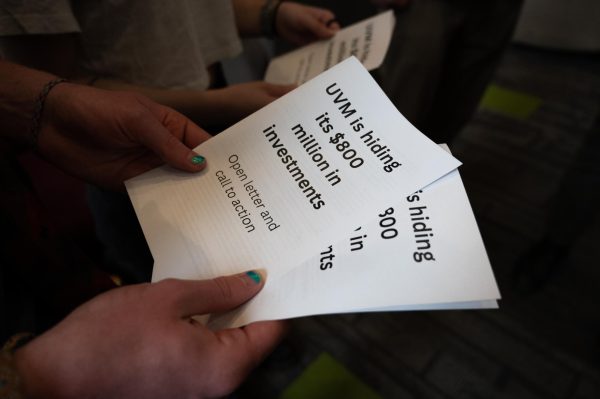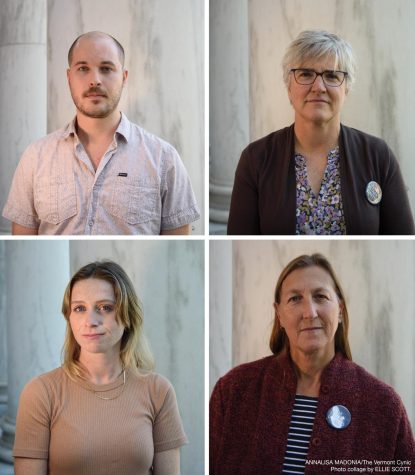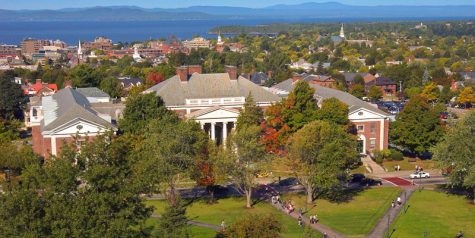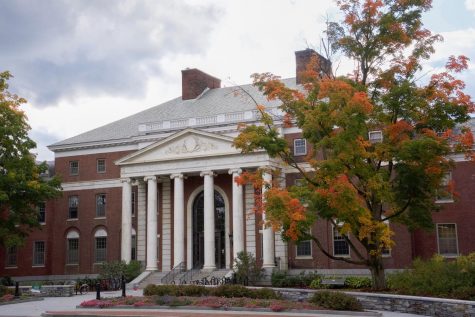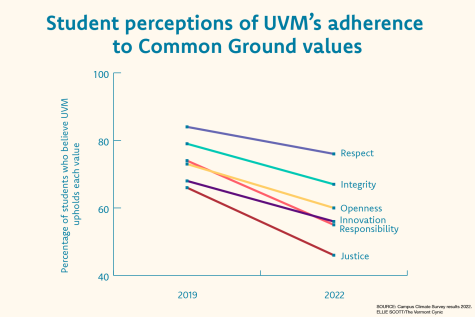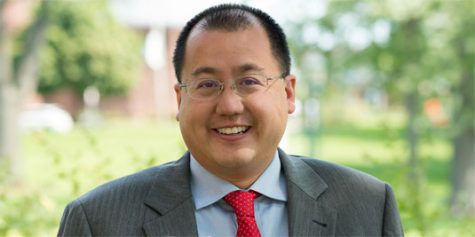Graduate students push to unionize, despite administrative concerns
A growing group of graduate students are collaborating on efforts to unionize, said masters student George Love.
However, UVM administration feels a unionized environment would impact the relationship they have with the Graduate Student Senate, making it difficult to collaboratively improve working conditions, according to a Jan. 13 email from Graduate College Dean Cynthia Forehand.
The GSS works on behalf of graduate students and serves as a liaison between UVM administration, faculty, staff, undergraduate students and graduate students, according to its website.
The organizing group of graduate students pursuing a union have yet to file a petition with the Vermont Labor Relations Board to formally propose a graduate student bargaining unit at UVM, according to Forehand’s email.
If their efforts succeed, the union would become the sole voice for all graduate teaching assistants, graduate research assistants and graduate assistants for terms and conditions of employment, according to Forehand’s email.
However, pre-doctoral fellows, temporary student employees, work study students and other graduate students would not be eligible to participate in a bargaining unit.
Upwards of 50 students are fighting for long-overdue improvements to what they believe to be subpar working conditions, which became more evident with the onset of COVID-19, PhD student Marcus Weinman said.
While Forehand stated in her email administration works closely with the Graduate Student Senate to achieve fee reductions, a parental leave policy, healthcare coverage, financial aid packages, stipend increases exceeding cost of living rates and more, some students feel dissatisfied.
“Generally speaking, we don’t get paid living wages,” Weinman said “[This] spawned a whole series of problems including a very large food insecurity problem where 20% of graduate students cannot afford food.”
A fall 2017 survey reported that 20% of UVM’s graduate and medical student population experienced food insecurity, according to UVM data.
UVM’s minimum hourly wage is $21.95 for master’s students and $26.46 for doctoral stipends, according to a Jan. 18 email from UVM spokesperson Enrique Corredera. Some colleges at UVM have higher hourly wage baselines.
Vermont’s statewide hourly minimum wage is $12.55, according to a Nov. 2, 2021 press release.
Among other concerns, many disapprove of the way administration treats graduate students throughout the pandemic COVID-19, Weinman said.
“I and other graduate students were forced to teach in-person, pre vaccine,” he said.
“There are graduate students who had to hide their state of immunocompromised to essentially keep their jobs. They were afraid that if they were to speak out […] they would lose their positions.”
Corredera stated in his email that students with COVID-19 risk factors should go to Student Accessibility Services for determination of accommodation.
“It’s also worthwhile noting that the administration themselves have certainly gotten their hands very dirty in trying to impede our progress [to unionize] in various forms,” Weinman said.
However, Corredera stated in his email that UVM has not engaged in anti-union rhetoric, and has complied with all rules regarding efforts to unionize.
President Suresh Garimella meets with GSS leaders monthly, Patricia Prelock, senior vice president and provost, consults with them regularly and Forehand attends GSS meetings and works alongside graduate students personally, as well, according to Forehand’s email.
“The University has an excellent track record of working closely and productively with the [GSS] to address graduate student concerns,” Forehand’s email stated.
Weinman said he first introduced the possibility of unionizing to the Graduate Student Senate in fall 2019, when he and Egler began outreach to expand a group of graduate students to pursue this goal.
“Labor needs to have power, and the way we do that is through unions,” PhD student Megan Egler said.
Graduate Students United meets weekly to organize efforts towards unionization, with its most recent virtual meeting having taken place this past Monday, Jan. 17.
During their meetings, they discuss the idea of relationship and network building among graduate students, Egler said.
“Grad students are really starting to realize that unionizing is the only path forward, the only avenue by which we can create a power structure where graduate students have sufficient power to stand up for themselves and advocate for their needs, because that’s not something that’s existed before,” Weinman said.


